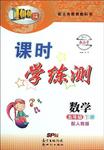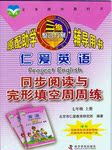题目内容
In the early part of the twentieth century, racism was widespread in the United States. Many African Americans were not given equal opportunities in education or employment. Marian Anderson (1897-1993) was an African American woman who gained fame as a concert singer in this climate of racism. She was born in Philadelphia and sang in church choirs during her childhood. When she applied for admission to a local music school in 1917, she was turned down because she was black. Unable to attend music school, she began her career as a singer for church gatherings. In 1929, she went to Europe to study voice and spent several years performing there. Her voice was widely praised throughout Europe. Then she returned to the US in 1935 and became a top concert singer after performing at Town Hall in New York City.
Racism again affected Anderson in 1939. When it was arranged for her to sing at Constitution Hall in Washington, DC, the Daughters of the American Revolution opposed it because of her color. She sang instead at the Lincoln Memorial for over 75 000 people. In 1955, Anderson became the first black soloist to sing win the Metropolitan Opera of New York City. The famous conductor Toscanini praised her voice as “heard only once in a hundred years”. She was a US delegate to the United Nations in 1958 and won the UN peace prize in 1977. Anderson eventually triumphed over racism.
【小题1】 According to this passage, what did Marian Anderson do between 1917 and 1929?
| A.She studied at a music school. | B.She sang for religious activities. |
| C.She sang at Town Hall in New York. | D.She studied voice in Europe. |
| A.had a very rare voice | B.sang occasionally in public |
| C.sang only once in many years | D.was seldom heard by people |
A. at the Lincoln Memorial B. in Washington, DC.
C. in Europe D. at the United Nations
【小题4】This passage shows that Anderson finally defeated racism in the US by .
| A.protesting to the government | B.appealing to the United Nations |
| C.demonstrating in the streets | D.working hard to perfect her art |
【小题1】B
【小题2】A
【小题3】C
【小题4】D
解析试题分析:文章难度:中等。本文介绍了美国黑人歌唱家玛丽安·安德生如何凭着自身实力和勤奋战胜了种族歧视,获得了事业上的成功。
【小题1】细节理解题。根据第一段“Unable to attend music School she began her career as asinger for church gatherings.”可知在 1917 年到 1929 年之间 Anderson 为宗教活动唱歌。选B
【小题2】推理判断题。由第二段“The famous conductor Toscanini praised her voice as heardonly once in a hundred years.”可推知答案。选A
【小题3】细节理解题。由第一段倒数第二、三句“...she went to Europe to study voice andspent several years performing there. Her voice was widely praised throughout Europe.”可知她的美妙的声音一开始是在欧洲被认可。选C
【小题4】推理判断题。由文章主旨可知,Anderson 凭着认真工作以使得她的艺术完美,借此击败种族歧视。选D
考点:考查人物传记类短文
点评:本文所设试题主要考察细节查找,对于文章中的细节题,要注意文本内容的理解。关键是找出原文的根据,认真核查题支和原文的异同,常犯错误有:绝对化语言,范围扩大或缩小,以偏概全,张冠李戴等。带着问题,再读全文,找出答题所需要的依据,完成阅读。

 百年学典课时学练测系列答案
百年学典课时学练测系列答案 仁爱英语同步练习册系列答案
仁爱英语同步练习册系列答案D
Parties, iPods, concerts, movies, TV shows, video games, traffic. All of these things of the modern world make life entertaining and enjoyable. But our 21st-century lifestyle is also loud and, if we don’t take notice, it can have an effect on our hearing.
Most teenagers don’t think about hearing loss. But if you experience any of the following symptoms(症状), you may already be hearing damaged: you make efforts to hear normal talk, you have to turn up the TV or radio so high that others complain, you watch other people’s expressions to understand what they are saying, you ask people to repeat themselves, you misunderstand what people are saying or you hear ringing in your ears.
iPods and other MP3 players are as common as the clothes you wear, and just as fashionable. But if you turn up an iPod to more than 60 percent of its maximum volume(最大音量), and listen to music for more than an hour, you are asking for trouble. And, it does not matter if the music you play is classical, rock or heavy metal.
Some researchers find that young people who break the so-called 60-percent/60-minute rule in listening to iPods are at the risk of suffering hearing loss.
Why is an iPod dangerous? With ear buds placed directly in the ear canal and high-volume music played over a long period of time, it’s like working in a loud factory all day, being a maintenance(修理)person under a jet airplane or using a jackhammer(手提钻)on a building site.
Similarly, iPod music can cause a short time or permanent(永久的)hearing damage. A loud iPod can cause a ruptured(破裂的)eardrum and, over time, may cause permanent damage to the tiny hairs in the inner ear. If these tiny hairs are damaged, they cannot effectively send sounds to the auditory nerves(听觉神经)that connect to the brain. If this happens, hearing loss becomes permanent.
【小题1】Which of the following shows that you are suffering hearing loss?
| A.You are interested to listen to others’ talking. |
| B.You have to read others’ expressions to understand them. |
| C.You can only understand others over the phone. |
| D.You always think you hear the ringing of the phone. |
| A.Listen at least an hour every time. |
| B.Turn up the volume to the highest level. |
| C.keep the sound lower than 60% of its highest volume. |
| D.Choose classical, rock or heavy metal music. |
a. The eardrum is broken.
b. The auditory nerves cannot receive sounds.
c. Tiny hairs are damaged.
d. Ear buds are placed directly in the ear canal.
e. High-volume music is played over a long time.
| A.d-a-c-b-e | B.e-c-a-b-d | C.b-c-a-d-e | D.d-e-a-c-b |
| A.music that teenagers like | B.hearing problems caused by the loud world |
| C.ways that teenagers enjoy music | D.dangerous modern lifestyles of teenagers. |